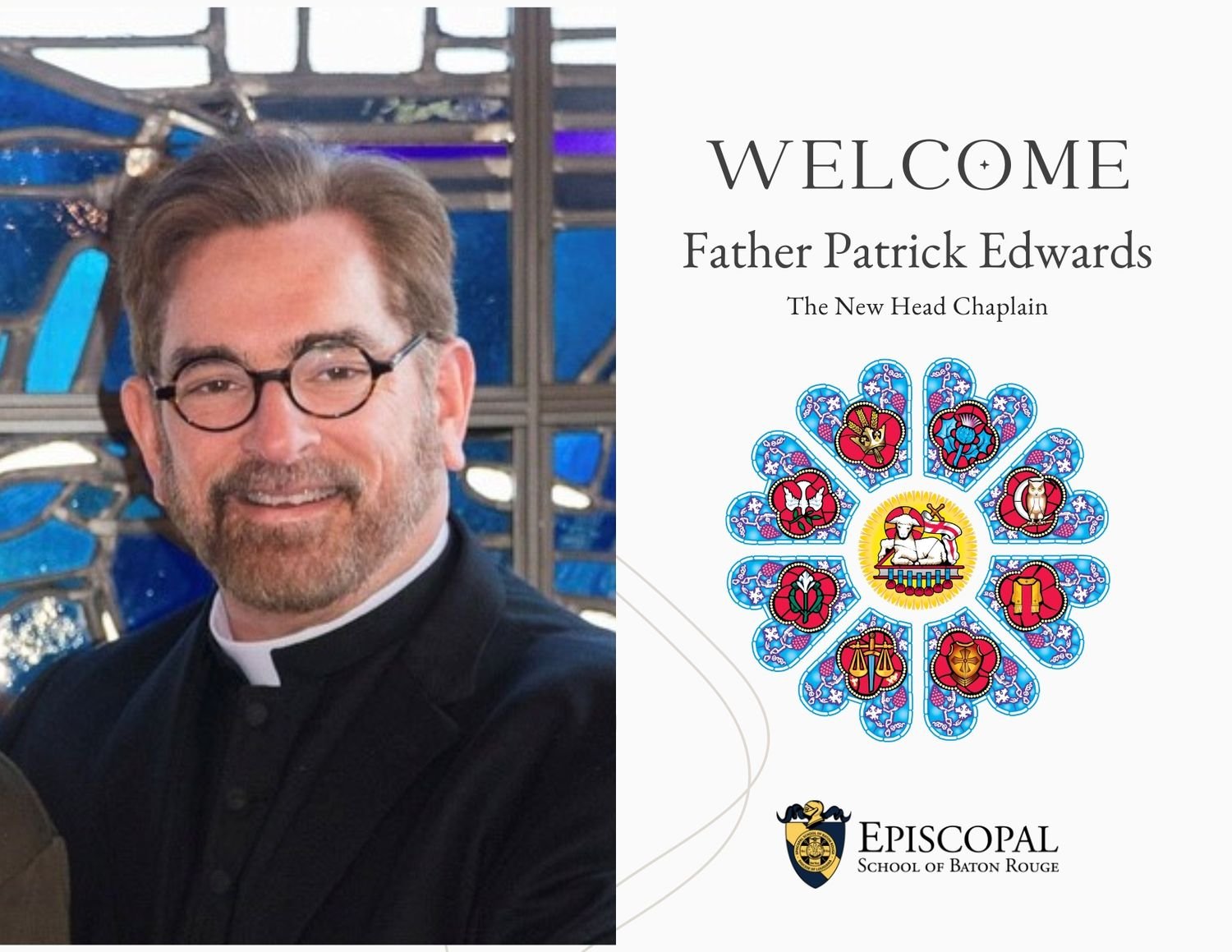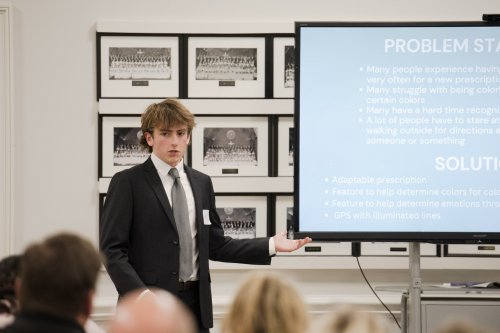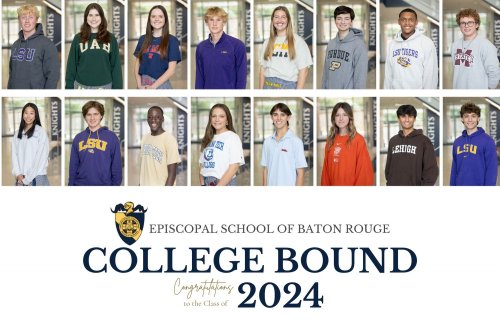- Discover Episcopal
- Admission
- Our Program
- Athletics
- Arts
- Spirituality
- Student Life
- Support Episcopal
- Alumni
- Parent Support
- Knightly News
- Contact Us
- Calendar
- School Store
- Lunch Menu
- Summer Camps
« Back
What is Project-Based Learning Anyway?
August 26th, 2021
.jpg?v=1629987538645)
You’ve heard the phrase, you’ve seen the photos, and your child may have even presented what they’ve learned to you. But what exactly does “project-based learning” mean?
Project-based learning is a teaching method in which students gain knowledge and skills by actively engaging in both real-world and personally meaningful projects for extended periods of time. They demonstrate all they’ve learned by creating a public product or presentation for a real audience. As a result, students develop deep content knowledge as well as critical thinking, collaboration, creativity, and communication skills. Project-based learning unleashes a contagious, creative energy among students and teachers.
Teachers design project-based learning units after thoroughly reviewing the grade-level milestones to ensure that all units of study are aligned with educational standards and best practices. Here at Episcopal, project-based learning begins in Prek-3, our youngest Knights, with an endearing unit called “School and Friends.”
Project-based learning is rooted in teaching best practices and supports a growth mindset. Not only are all units aligned to educational standards, but they are also created to allow for student voice and choice, to promote student independence and growth, and to foster open-ended inquiry and collaboration. Throughout the units, teachers work alongside students to help them organize tasks, establish checkpoints, use resources, and create quality end products to celebrate with an audience.


Project-based learning units are divided into three phases, which include:
Phase I
In Phase I, students make a connection to the topic by discussing and writing about what they know and wonder about regarding that topic.
Phase II
The hallmarks of Phase II are investigation and research. Here, students are exposed to concepts such as data collection and analysis, problem-solving, and drawing and testing conclusions as they explore the topic in greater detail to become “experts.” In this phase, students often go on field trips or learn from guest speakers. They also participate in hands-on activities that generate excitement and enthusiasm for learning.
Phase III
Phase III is where the projects come to life! Students, who are now the experts, share their knowledge. This can take the form of a presentation, a book, a display for a museum, a written report, or a video shared with families or peers.


First grade teacher Heather Cutrer has been using project-based learning to teach since the approach was introduced at Episcopal in 2012. Cutrer and several of our educators trained at the Duke School to learn more about the process. She says she has seen that the learning-by-doing philosophy results in actively engaged students, who process and retain the information because they take ownership of the project.
Lower School faculty are particularly fond of the project-based learning approach because it is student-centered and student-led. While the learning-based project units may be the same each year, at Episcopal, they often vary because of changing student interests. A great example of this is the annual first grade “Healthy Selves” unit. Cutrer and her colleagues have found that each of the classes has a different focus from exercise to healthy eating habits. Being able to accommodate student interests, while meeting the educational standards, ultimately makes the units more interesting for both students and teachers.
Project-based learning also allows for a collective “buy-in” for student learning. Depending on the unit, parents and other faculty may be called upon to share their expertise. For example, parents who are also doctors or dentists serve as experts for the “Healthy Selves” unit. Members of the physical education department share their knowledge on everything from weight-lifting safety and caring for a bleeding nose to hiking techniques and kayaking tips.
Episcopal teachers have seen positive results from the project-based learning experience. Not only are the learning standards met, but the students are also excited about what they’ve learned. In fact, parents often report back to us that students are sharing their newfound knowledge with the family.
Project-based learning has proven to be an important and meaningful instructional method for ensuring that students learn and grow in the type of joyful and educational environment provided in Lower School. To learn more about our Lower School program, click here.

Beth Gardner
Beth Gardner is the Lower School Division Head. Previously, Beth was the Assistant Lower Division Director at Berkeley Preparatory School in Tampa, Florida. Berkeley is an independent Episcopal school and was ranked as the top private school in Tampa Bay and number six in the state of Florida by Niche.com. Prior to her time at Berkeley, Beth was the Lower School Director at Columbia Independent School in Columbia, Missouri. Beth brings extensive experience in education with a career spanning back to 1993 when she taught pre-kindergarten, first, second, fourth, fifth and sixth grade. Beth trained at Columbia University’s Teachers College Reading and Writing Project and has led book studies in the Responsive Classroom method. She is Apple Certified and trained in both Google Apps for Education and Singapore Math. Beth is a National Board Certified Teacher. She earned a bachelor’s degree in early childhood education with a certification in PK-8 grade from the University of Missouri and a master’s degree in education, curriculum and instruction from William Woods University.
Posted in the categories All, Lower School.
Other articles to consider
 May16Episcopal Welcomes Father Patrick Edwards as New Head Chaplain
May16Episcopal Welcomes Father Patrick Edwards as New Head ChaplainLearn more about new Episcopal Head Chaplain Father Patrick Edwards.
See Details May16Lower School Happenings - May 2024
May16Lower School Happenings - May 2024There's excitement and joy in Lower School as students wrap up the school year. Check out the latest projects.
See Details May16Future Business Leaders Benefit from Spring Lessons/Community Support
May16Future Business Leaders Benefit from Spring Lessons/Community SupportEpiscopal students participated in two real-world learning experiences – the What’s Your Bright Idea? Episcopal Pitch Contest and the annual Burkenroad Reports Investment Conference.
See Details May8College Announcements 5.10.24
May8College Announcements 5.10.24Please join us in congratulating members of the Class of 2024 as they announce their college enrollment decisions.
See Details
Categories
- All
- Admission
- Athletics
- College Bound 2019
- College Bound 2020
- College Bound 2021
- College Bound 2022
- College Bound 2023
- College Bound 2024
- Counselors Corner
- Episcopal Alumni
- Giving
- Head Of School
- Lower School
- Middle School
- Spirituality And Service
- Student Work
- The Teachers' Lounge
- Upper School
- Visual And Performing Arts
Recent Articles
- 05/16/24Episcopal Welcomes Father Patrick Edwards as New Head Chaplain
- 05/16/24Lower School Happenings - May 2024
- 05/16/24Future Business Leaders Benefit from Spring Lessons/Community Support
- 05/8/24College Announcements 5.10.24
- 05/7/24Episcopal's Addisyn Botos Will Continue Track & Field at Southern Miss
- 05/7/24Spring Sports Success!
- 05/3/24Episcopal Audiences Wowed by "The Children of Willesden Lane"
- 05/3/24Service Learning & Community Impact Students Share Thoughts on Earth Day
- 05/2/242024 Mums of Alums Luncheon Draws Large Crowd of Supportive Mums
- 05/2/24College Announcements 5.3.24











